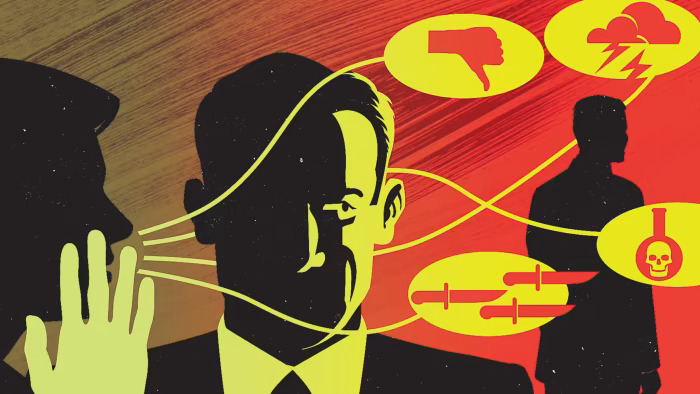The July Revolution instilled doubt in me before I could cry for my country. I first got to know about the movement on July 15th, when the Bangladesh Chhatra League (BCL) violently attacked the protestors. Since then, every day had been filled with worry for us, as the police had been physically attacking the protestors. Our anxiety had been fluctuating as we received news, some of which turned out to be rumours. Since July, every piece of news I encounter compels me to check the comment sections and seek information from other sources to verify their authenticity and credibility. The entire nation is engulfed in this movement, with rumours of an internet blackout and lack of information further heightening our anxieties. Living outside the country during this time has been particularly unsettling; I constantly checked Twitter and reached out to family and friends for updates. Amid this turmoil, many have taken to social media, even appealing to Elon Musk to open Starlink access for Bangladesh. Although I understood that such access required a receiver, I shared the request on Twitter, driven by guilt for my inability to contribute more and to highlight the challenges we faced.
The significance of the July Revolution in Bangladesh lies not only in its grassroots mobilization but also in the extensive social media activity it has generated. This includes sharing videos of attacks with human rights organizations, creating tributes to honour martyrs to evoke emotion worldwide, and spreading rumours.
Since the government’s fall, the July Revolution has seemingly peaked in rumour circulation, overwhelming our daily lives. The instability of the movement, coupled with the government’s failure to ensure equal treatment across religious cultures, has led many to believe and propagate rumours out of fear, generating widespread anxiety. This raises significant questions: Why do rumours proliferate so rapidly during movements and periods of instability? Who is behind these rumours, and who benefits from their spread? Rumours, an age-old tactic in social movements, are particularly prevalent in authoritarian regimes. In our current era of post-truth politics, these rumours serve as potent political tools, leveraging technology and social media to disseminate both misinformation and disinformation. In such a landscape, while it can create collective resistance against authoritarian government, objective facts can lose their influence and get overshadowed by emotional appeals and personal beliefs. This phenomenon allows fabricated untruths to masquerade as truths, blending reality with exaggeration to provoke strong emotional responses. According to Foucault(1980), the perception of truth is deeply intertwined with power; it is shaped by discourse, power relations, and context. As a result, the truth becomes a battleground between competing narratives, where the dominant discourse prevails, often irrespective of its factual accuracy. In the context of the July Revolution, the collective movement of the whole country and the weak or silent role of the mainstream media people connected each other through rumours. According to American Sociologist Fisher(1998), rumour isn’t always about spreading lies or misleading information; it’s about collectively trying to understand a confusing or fast-changing situation. However, this openness allows misinformation or rumours to gain legitimacy quickly. At the same time, since rumours spread based on fabricated information, these distract from pressing issues, delegitimise protests to some, and also rally public support against the authoritarian government. Political Scientist Huang(2015) notes that rumours can pose significant threats to such regimes as they erode public trust. In the first six months of 2024 alone, the Rumor Scanner identified 1,380 pieces of misinformation circulating in Bangladesh against the former prime minister, marking a nearly 61% increase from the previous year (The Business Standard: 2024). This raises an important question: Were we witnessing the groundwork being laid for the July revolution, using rumours as a tool to unite the populace against a dictatorial regime from day one of 2024?While precise data on the number of rumours emerging since the beginning of the July revolution is difficult to find, fact-checking organizations like Fact Watch are continuously uncovering new rumours. The atmosphere of anxiety is palpable, with real communal attacks on the Hindu minority being conflated with unfounded rumours. Although rumours can galvanize collective action, they also carry the risk of inciting mob violence, as seen in the tragic case of Taslima Begum Renu, who was killed based on unfounded accusations of being a child kidnapper in 2019. While rumours can indeed foster resistance against authoritarian governments, an overabundance can create opportunities for the misuse of this collective power, undermining genuine incidents by dismissing them as mere fabrications.
Professor Huang emphasizes the difficulty of refuting rumours online without compelling evidence or endorsement from the perceived government. The Awami League government, having ruled without elections and lost legitimacy, has made it difficult for them to counter any kind of misinformation that came to notice during the movement or after the fall of them. Their perceived electoral illegitimacy has rendered even solid evidence insufficient to regain public trust. This situation echoes Foucault’s assertion that truth is shaped by dominant discourses, complicating the challenge of navigating truth and misinformation in politically charged environments. As a result, without repressing it forcefully, there was no other option for an authoritarian government to deal with misinformation in social media, such as internet shutdowns during the July movement, which led to rumours spread further due to lack of information flow, which made authoritarian government more repressive and attacking towards people, it is taking place like a loop.
My objective in this writing is to show that when rumours function as communication tools in social movements, the burden of proof or situation management lies with the government. It is the state’s responsibility to refute these rumours. However, when the public assumes this responsibility, it creates divisions among people, which is especially alarming for a country with a questionable judicial system. Rumours, while politically charged, can incite unrest and become markedly dangerous in unstable environments.
In this context, combating rumours on social media cannot restore public trust and alleviate their fear and anxiety without decisive governmental intervention. While completely halting the spread of misinformation may be impossible in the digital age, its impact can be minimized by addressing deeper political and socioeconomic issues and ensuring equitable application of the law. The previous government’s failure to provide solid evidence against the rumors leveled at them led to oppressive measures, including the banning of Facebook pages and blogs, restrictions on films and literature, and the imposition of draconian laws like the Digital Security Act of 2018. As we navigate this turbulent landscape, it is crucial to observe how Dr. Yunus responds to the emerging unrest. Will their silence regarding the rampant rumors over the past three months be a strategy to suppress dissent in the name of controlling misinformation, thereby becoming another oppressor? Or will they take meaningful steps to address the underlying political and socioeconomic issues at play?
Author: Resat Amin Priya
Work cited:
1. Fisher, Dana R. 1998. “Rumoring Theory and the Internet.”
2. Foucault, Michel, and Colin Gordon. 1980. Power/Knowledge: Selected Interviews and Other Writings, 1972-1977. 1st American ed. New York: Pantheon Books.
3. Huang, Haifeng. 2015. “A War of (Mis)Information: The Political Effects of Rumors and Rumor Rebuttals in an Authoritarian Country.”
4. 2024, “The Business Standard 2024 Rumor Scanner identified 1,380 pieces of misinformation, Sheikh Hasina most targeted individual” The Business Standard, July 11


